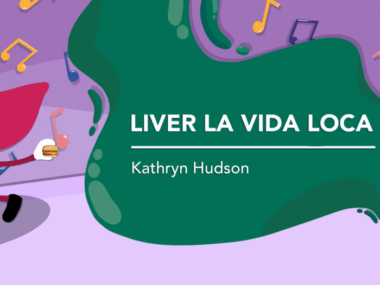With liver disease, getting a good night’s sleep is crucial
While there are no magic shortcuts, here are some of my go-to tips
Written by |

I have mixed feelings as summer begins to pack up shop for the year. This season has a certain energy, like a house party with your best friends that you hope will never end. Still, I’ve found one silver lining for my health: The sun setting earlier means better sleep for me.
Getting consistent, quality rest is crucial for many chronic health conditions, including metabolic dysfunction-associated steatohepatitis (MASH). Like every organ in the body, the liver needs those nightly hours of sleep to carry out its daily work. But when the summer sun refuses to set, convincing your body it’s bedtime can be tricky.
For years, I didn’t think twice about taking sleep aids, as long as a doctor prescribed them. That changed after I was prescribed one so strong I became one of those people who act out in their sleep. I once made a full dinner without remembering it. My ex-husband even found me sitting in my car, keys in the ignition, completely asleep. While funny in hindsight, it was terrifying when I realized I could’ve driven away in a semiconscious state.
Back then, insomnia came in seasonal waves. Each spring, I’d endure weeks of restless nights until desperation sent me back to my doctor. Eventually, those cycles faded, and I enjoyed a stretch of easy sleep — just rolling onto my side, hands clasped in something like prayer, and drifting off without a fight. Then came MASH and its mean-girl friend, menopause.
According to a 2020 study in the Journal of Thoracic Disease, 60%-80% of people with chronic liver disease report sleep disturbances. The problems range from chronic insomnia and poor sleep quality to daytime exhaustion and disrupted circadian rhythms. For those of us with advanced liver disease, poor sleep doesn’t just make life miserable — it can accelerate disease progression. When a liver transplant or worse hangs over your head, you’ll try almost anything to reclaim rest.
There are no magic shortcuts, but setting yourself up for success is key. For me, that means a consistent bedtime routine: dimming the lights, ignoring my phone, and creating a bedroom optimized for rest. I try to cut caffeine by midafternoon, avoid late meals, and do light stretches before bed. A satin eye mask I bought online for about $10 has also become essential. I’d love perfect quiet, but I live in a big city.
I will savor these last few weeks of summer. I love hearing the chorus of toads that live by the stream near my house, a sound I’ll miss when cooler weather rolls in. Still, what matters most is sleeping comfortably for at least six hours — a bare minimum for me. Anything less and I’m out of sorts, and I know my liver feels it, too.
Finding your personal sleep sweet spot can take trial and error. Entire YouTube channels now exist to help, offering nature sounds, white noise, or ambient music paired with dark screens to avoid disrupting melatonin. Many run for up to eight hours — perfect for anyone battling insomnia or middle-of-the-night awakenings. I’ve used them myself with decent success.
Science is still catching up to how deeply sleep and disease intertwine, but some age-old remedies remain true. A glass of warm milk, regular exercise, well-timed meals, and avoiding stimulants like caffeine can all be transformative. Ultimately, the most challenging part for me isn’t knowing what to do — it’s remembering to put myself to bed at a decent time.
Note: Liver Disease News is strictly a news and information website about the disease. It does not provide medical advice, diagnosis, or treatment. This content is not intended to be a substitute for professional medical advice, diagnosis, or treatment. Always seek the advice of your physician or other qualified health provider with any questions you may have regarding a medical condition. Never disregard professional medical advice or delay in seeking it because of something you have read on this website. The opinions expressed in this column are not those of Liver Disease News or its parent company, Bionews, and are intended to spark discussion about issues pertaining to liver disease.



Leave a comment
Fill in the required fields to post. Your email address will not be published.